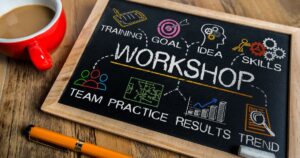As organizations strive to adapt and grow, investing in leadership development has never been more essential. By engaging in purposeful activities, aspiring leaders can unlock their potential and drive their teams toward success, ensuring a brighter future for themselves and those they lead.
Leadership Skills Activities
Leadership skills are crucial for driving organizational success. Strong leaders guide teams, improve productivity, and enhance cohesion. Effective communication, a key skill, ensures clear understanding and reduces conflicts. Decision-making skills help leaders weigh options and choose the best course of action. Empathy fosters a supportive environment, encouraging team members to contribute their best. Developing these skills through targeted activities boosts confidence in aspiring leaders.

Leadership skills develop through various activities, enhancing essential traits. Tailored activities cater to group dynamics, individual growth, and virtual settings.
Group activities foster team collaboration and communication. Workshops where members solve problems through teamwork enhance these skills. Leadership games, like role-playing, simulate real-world scenarios, highlighting decision-making and adaptability. Trust-building exercises, such as trust falls or feedback sessions, strengthen team cohesion and openness in communication.
Individual Activities
Individual activities focus on self-awareness and personal leadership development. Journaling promotes reflection on leadership experiences and lessons learned. Reading books by renowned leaders offers insights into effective leadership practices. Attending seminars or webinars also enhances knowledge, allowing individuals to incorporate new strategies into their leadership approach.
Virtual Activities
Virtual activities support remote leadership skill development. Online simulations offer interactive experiences to practice decision-making. Virtual workshops create collaborative environments that improve digital communication. Web-based feedback systems, like surveys or assessments, provide valuable insights into leadership strengths and areas for growth, enhancing overall effectiveness.
Benefits Of Engaging In Leadership Activities
Leadership activities significantly benefit individuals and organizations by fostering essential skills. Engaging in these activities refines communication, enhances decision-making, and strengthens team cohesion.
Improved Communication

Engaging in leadership activities develops effective communication skills. Participants learn to articulate ideas clearly, ensuring messages are understood and reducing misinterpretations. By practicing active listening and constructive feedback, they create an environment where team members feel heard and valued. Improved communication encourages transparency and trust within teams.
Leadership activities cultivate strong decision-making abilities. By simulating real-world scenarios, participants practice evaluating options and anticipating consequences. Over time, they gain confidence in selecting strategies that align with organizational goals. These experiences equip leaders to make informed decisions quickly, even under pressure, enhancing overall business agility.
Activities aimed at leadership development strengthen team cohesion. Trust-building exercises and collaborative tasks teach individuals to rely on each other’s strengths. By fostering a culture of collaboration and mutual respect, teams achieve shared objectives more efficiently. Enhanced cohesion drives innovation and boosts collective performance, contributing to long-term success.
Popular Leadership Skills Activities
Popular leadership skills activities develop essential traits in an engaging and effective manner. These activities equip individuals with tools to excel in leadership roles across various contexts.

- Role-Playing Exercises: Role-playing exercises immerse participants in realistic scenarios, offering hands-on leadership practice. These exercises encourage quick decision-making and adaptive communication. By simulating workplace challenges, participants refine their problem-solving skills and learn to manage team dynamics effectively. This experiential learning builds confidence and prepares individuals for real-life leadership roles.
- Leadership Workshops: Leadership workshops combine theoretical knowledge with practical exercises to enhance leadership abilities. Facilitators guide participants through discussions, case studies, and group tasks. These workshops cover topics such as conflict resolution, effective communication, and strategic planning. By engaging in these activities, participants gain insights into leadership styles and develop skills to motivate and guide their teams.
- Team Building Challenges: Team building challenges create environments that foster collaboration and trust. Activities like obstacle courses and puzzle-solving tasks require participants to strategize and communicate effectively. By working together to overcome obstacles, individuals build rapport and learn the value of diverse perspectives.
How To Implement Leadership Activities
Implementing leadership activities requires a thoughtful approach tailored to the needs of the team and organization. Begin by assessing the current skill levels and identifying areas for improvement. Choose activities that align with these needs, whether they’re group workshops, individual exercises, or virtual simulations. Ensure that the activities are engaging and relevant, offering practical scenarios that reflect real-world challenges. Encourage feedback and reflection after each session to reinforce learning and track progress.

